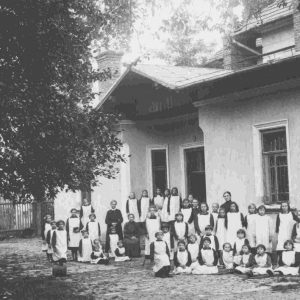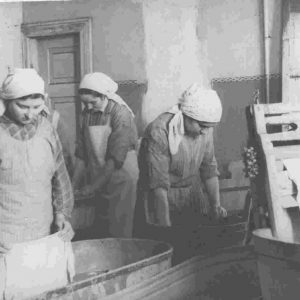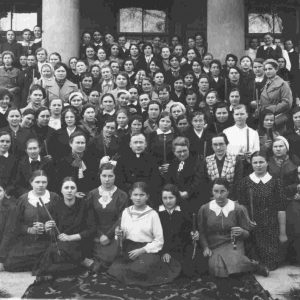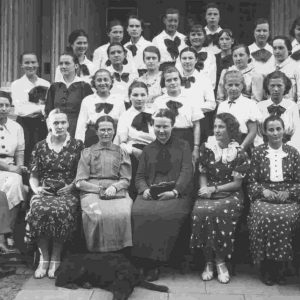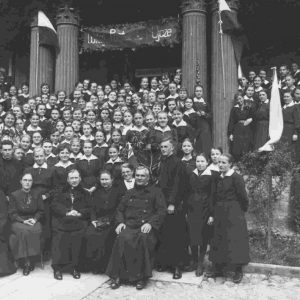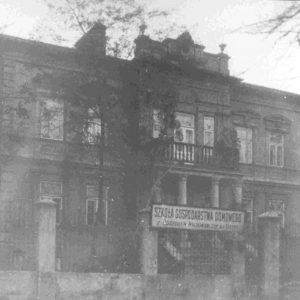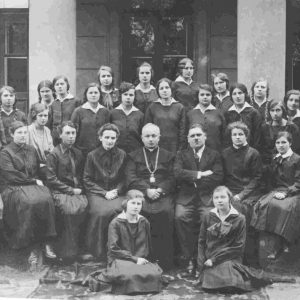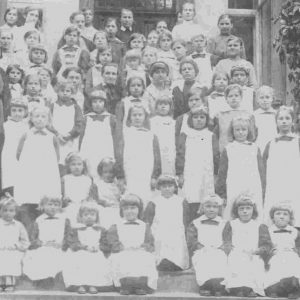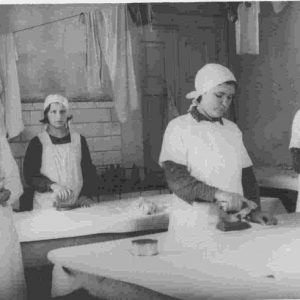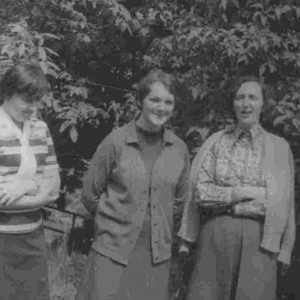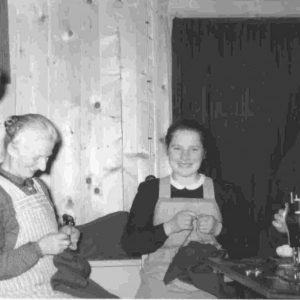Short history
of the Congregation
On December 8, 1884 through the efforts of Blessed Honorat Kozminski, the Congregation of the Servants of Jesus was established, as another link in hidden assemblies, founded by this charismatic capuchin.
Concerned about the destiny of the Polish society, being deprived on its national identity, Father Honorat understood God's plans for Eleonora Motylowska. As a co-foundres, he entrusted her with expanding this new work, which in particular was to be devoted to working with servants. Eleonora adopted the spiritual idea of Blessed Honorat - she introduced the Sisters into the charism of hidden service and formed on Franciscan spirituality of the newly founded Congregation. Initially, in order to reach the widest possible environment, the Congregation had in its structures four types of community immersion: sisters of common life, associated sisters, united sisters and all servants.
The first thirty years was a time of strong increase in vocations and expansion of apostolic work, still under the guidance of the Founder, who - usually through his letters - supported and spiritually honed Eleonora herself, as well as other Sisters.


During World War I and in the period between the wars, the congregation very dynamically grew its apostolate, providing continued education courses and schools for servants in many places of all three former partitions. During this period, the Sisters, under stricter hiding, operated under the banner of the Girls Care Association. Apostolic duties - characteristic of the era - included: job placement and train station missions, which facilitated the first contact of the sisters with girls coming to cities in search of work. At the same time, ministry for servants was carried out to deepen their religious life and prepare them for the sacraments.
Unfortunately, the Second World War - and even more the times of communist repression - changed the fraim of our apostolate very much. During the war, the sisters were forced to relocate frequently. The situation mobilized them to establish new apostolic contacts and to engage in helping victims of the war: children, prisoners, numerous Jewish families or persecuted priests.
After the war, however, the communist authorities prevented the sisters from carrying out many works, imposing new forms of work on them, for example among disabled children. At that time, many sisters began to work in state institutions to be able to continue their ministry among girls - in tailoring shops, vocational schools, hospitals or in catechesis work.
This situation remained unchanged until the fall of communism, when the new authorities began to restore the sisters lost works and give back properties taken from them. This gave the Congregation the opportunity to return to the tasks and services consistent with the charism: among girls and women, families and children.
Out of concern for the Polish diaspora, the sisters undertook works in the USA, Great Britain and Algeria. And by engaging in missions in Bolivia and Ukraine, they expanded the scope of their apostolate. In response to the signs of the times, in this century they opened a branch in Italy, also because of the ministry among the Polish diaspora.
At present, we are still looking for new ways of growing the Congregation and serving in the spirit of our Founders, ready to go wherever God leads us.

